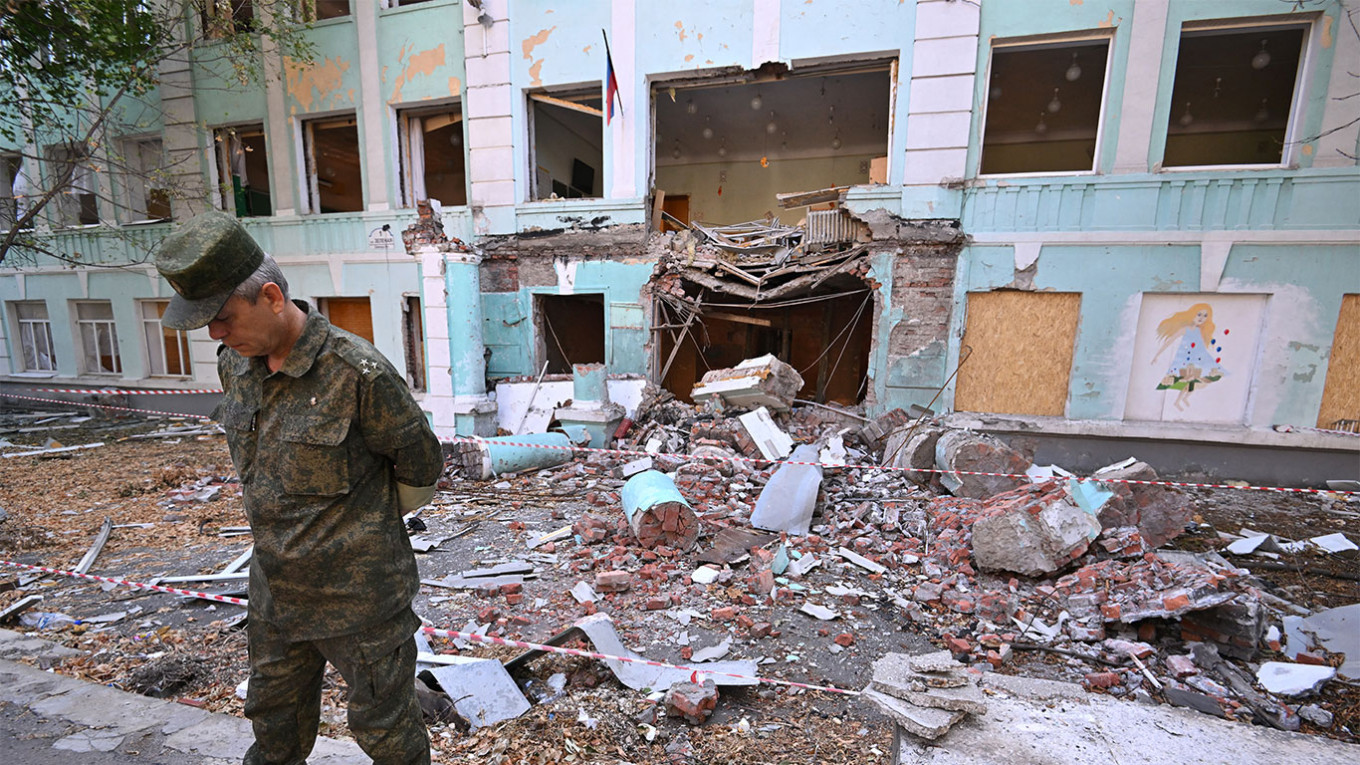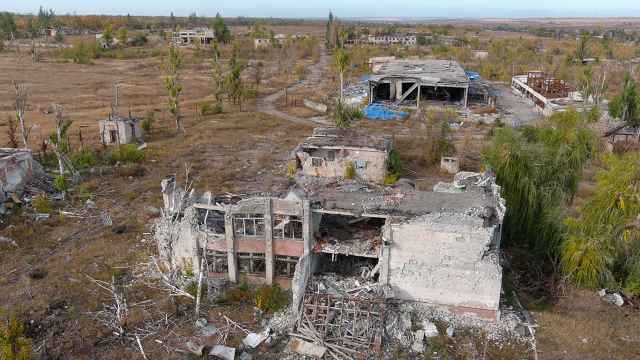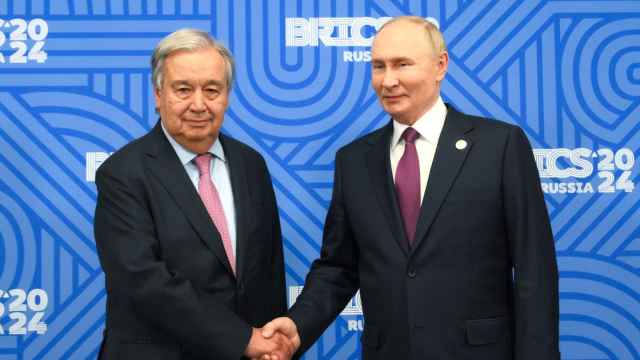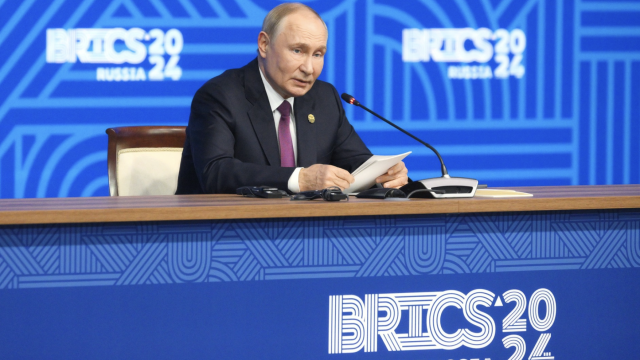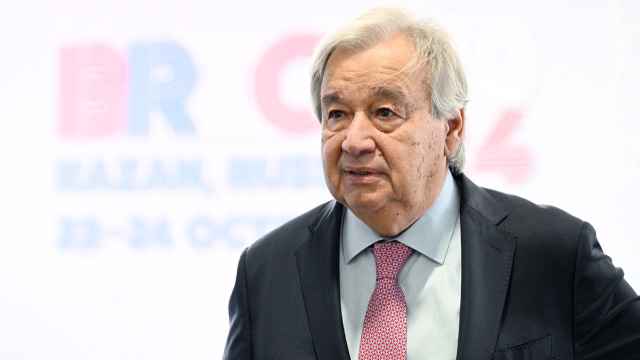Russian authorities have launched a campaign to recruit essential workers for the “reconstruction” of eastern Ukrainian territories occupied by its forces, according to public online job postings and news reports.
Since shifting the focus of its invasion eastward following a failed effort to capture Kyiv, Russia has said its main objective is to “liberate” areas of eastern and southern Ukraine predominantly populated by Russian speakers.
Now, officials appear to be banking on Russia’s poorest and most patriotic citizens to help these regions recover from the devastation of its four-month offensive, offering above-average salaries and a slew of benefits.
Dozens of job postings on Russian online marketplace Avito call on bricklayers, roof mechanics, painters and welders to join in the reconstruction of Donetsk, the capital of the self-proclaimed Donetsk People's Republic (DNR).
Most advertisements target users outside major urban centers and promise starting salaries two or three times higher than regional averages.
Workers are also promised an impressive benefits package including coverage of all meals and housing, paid vacation time, “career growth” opportunities and even a $60 cash bonus for the referral of a trusted friend.
Though the listings are posted by private contractors, some mention that the project is sponsored by Russia’s Construction Ministry and are accompanied by motivational slogans like “Let us rebuild Donbas together.”
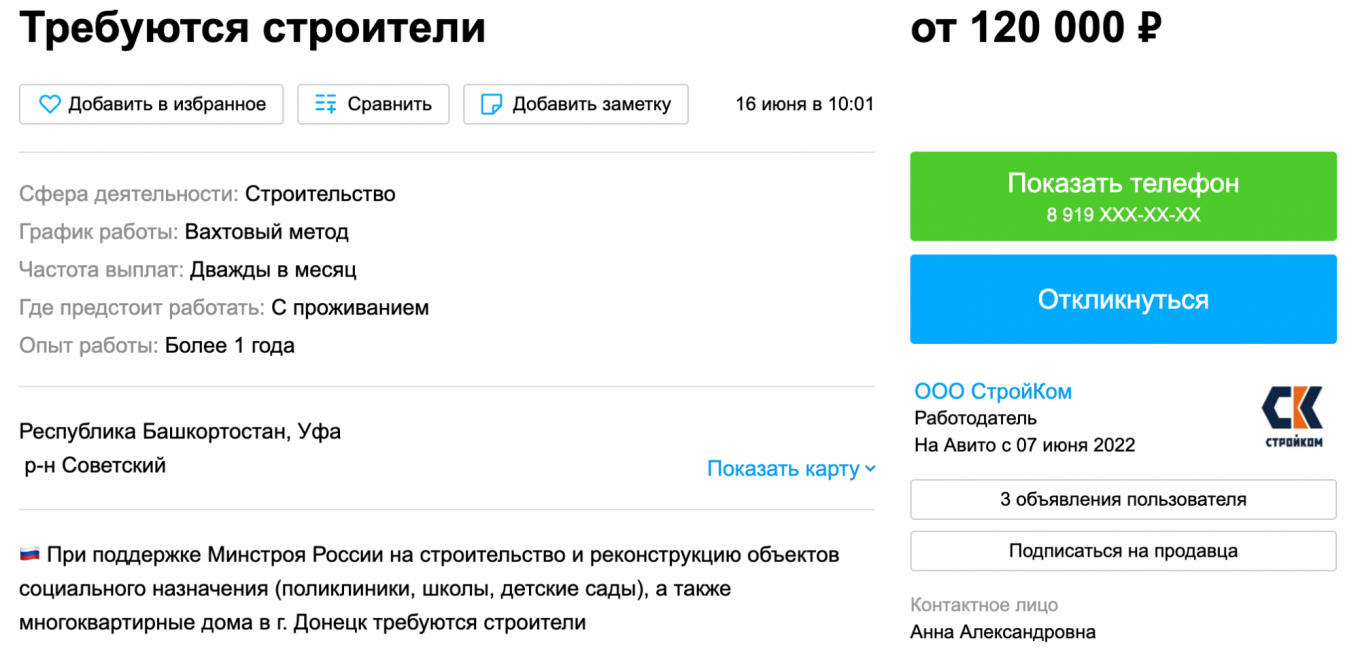
According to the advertisements, all workers venturing on the patriotic mission will be required to undergo screening by Russia’s Federal Security Service (FSB).
While the construction workers are promised to be “sent off” to occupied territories “within days,” the advertisements make no mention of compensation in case of a worker’s potential injury or death.
Construction recruiters contacted by The Moscow Times declined to comment on workers' safety or potential compensation.
Russian pro-government volunteer organizations have reportedly been recruiting and dispatching professionals for “humanitarian” missions to the breakaway republics of eastern Ukraine for months.
According to the government-linked Together with Donbas humanitarian group, dozens of Russian psychologists and teachers are currently working as part of a volunteer mission in Mariupol, the southern Ukrainian port that was nearly completely destroyed by Russian forces before they captured it last month.
Unlike construction workers, teachers are reportedly being recruited through private channels, such as closed social media groups at universities that specialize in teacher education.
According to the Siberia-based news website Tayga.info, one such recruitment message seeking teachers of “all subjects” appeared in a student chat at Novosibirsk State Pedagogical University.
“The tasks [are] to ensure the beginning of the school year, organize instructional and educational work and work with children,” the message reportedly said of the “business trip” to the occupied Kherson and Zaporizhzhia regions.
The university said the message was not authentic.
Safety concerns are one of the main factors hindering the recruitment of Russia-educated teachers for the occupied territories, according to Daniil Ken, the head of the independent Teachers’ Alliance union, which is affiliated with jailed Kremlin critic Alexei Navalny.
Despite the promised salaries being up to nine times higher than average in the regions of recruitment, demand for the teaching vacancies in eastern Ukraine remains low, Ken said.
“I hope some people have a moral understanding that going to the occupied territories is wrong, but there is also a rational risk assessment,” Ken told the Polish Belsat TV broadcaster Tuesday.
More successful seems to be the ongoing recruitment of officials, local deputies and Kremlin-loyal activists, Vedomosti newspaper reported earlier this week.
Politicians going to the separatist republics of Donetsk and Lugansk are guaranteed a doubling of their salaries and even promised promotions upon returning to Russia, the Kommersant newspaper reported Monday.
Several well-known regional politicians have already been promoted into prominent positions in the separatist republics.
Rostislav Antonov, a deputy in the Siberian city of Novosibirsk, was appointed as a humanitarian adviser to DNR leader Denis Pushilin earlier this month.
“From the very start of the special operation, I spent a lot of time on the territory of the Donetsk Republic, working on the liberated territories and helping people. This official status will allow me to work with greater dedication,” Antonov wrote on his Telegram channel, using the Russian government’s term for the war in Ukraine.
Antonov said that he will retain his salaried post in the Novosibirsk Council of Deputies and will be able to “fulfill responsibilities” at home despite his new “honorable and important” role in occupied Donetsk.
But in contrast to the patriotic fervor of recently promoted regional officials, ordinary Russians might be simply less optimistic about their future prospects in the newly “liberated” lands.
“There is a high chance of [the territories] being subject to counteroffensive by the Ukrainian forces,” Ken said. “Then some … would come back to Russia in a body bag.”
A Message from The Moscow Times:
Dear readers,
We are facing unprecedented challenges. Russia's Prosecutor General's Office has designated The Moscow Times as an "undesirable" organization, criminalizing our work and putting our staff at risk of prosecution. This follows our earlier unjust labeling as a "foreign agent."
These actions are direct attempts to silence independent journalism in Russia. The authorities claim our work "discredits the decisions of the Russian leadership." We see things differently: we strive to provide accurate, unbiased reporting on Russia.
We, the journalists of The Moscow Times, refuse to be silenced. But to continue our work, we need your help.
Your support, no matter how small, makes a world of difference. If you can, please support us monthly starting from just $2. It's quick to set up, and every contribution makes a significant impact.
By supporting The Moscow Times, you're defending open, independent journalism in the face of repression. Thank you for standing with us.
Remind me later.



